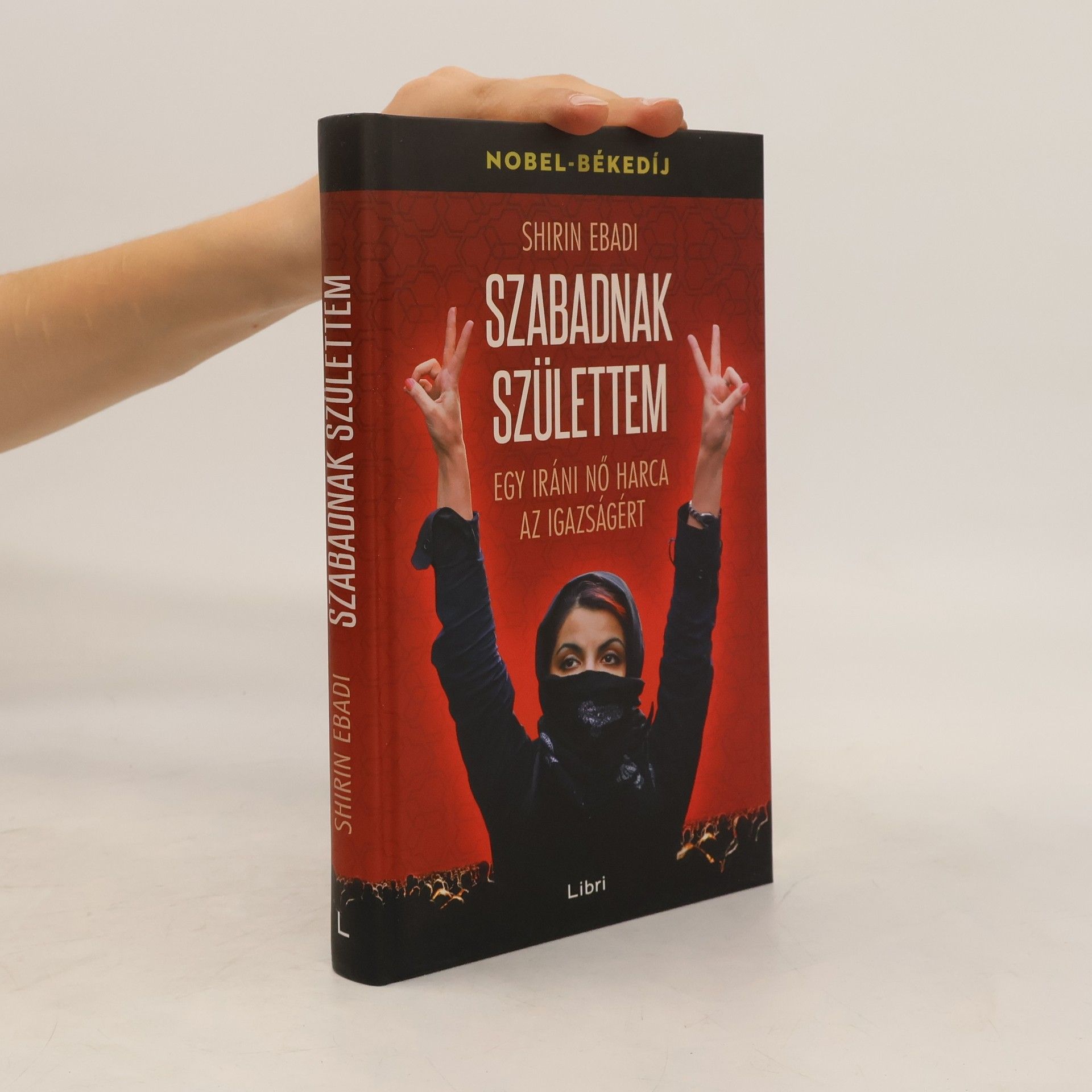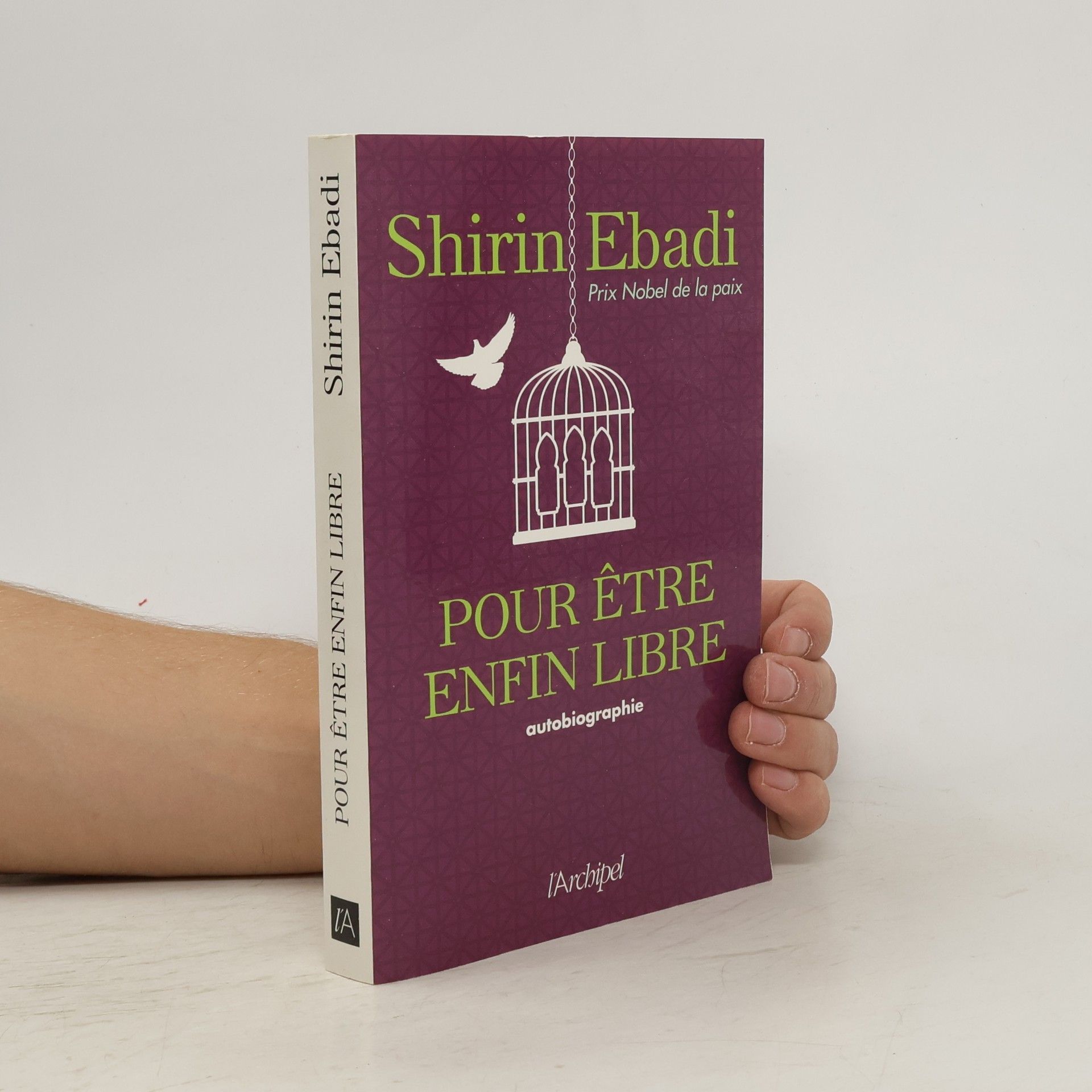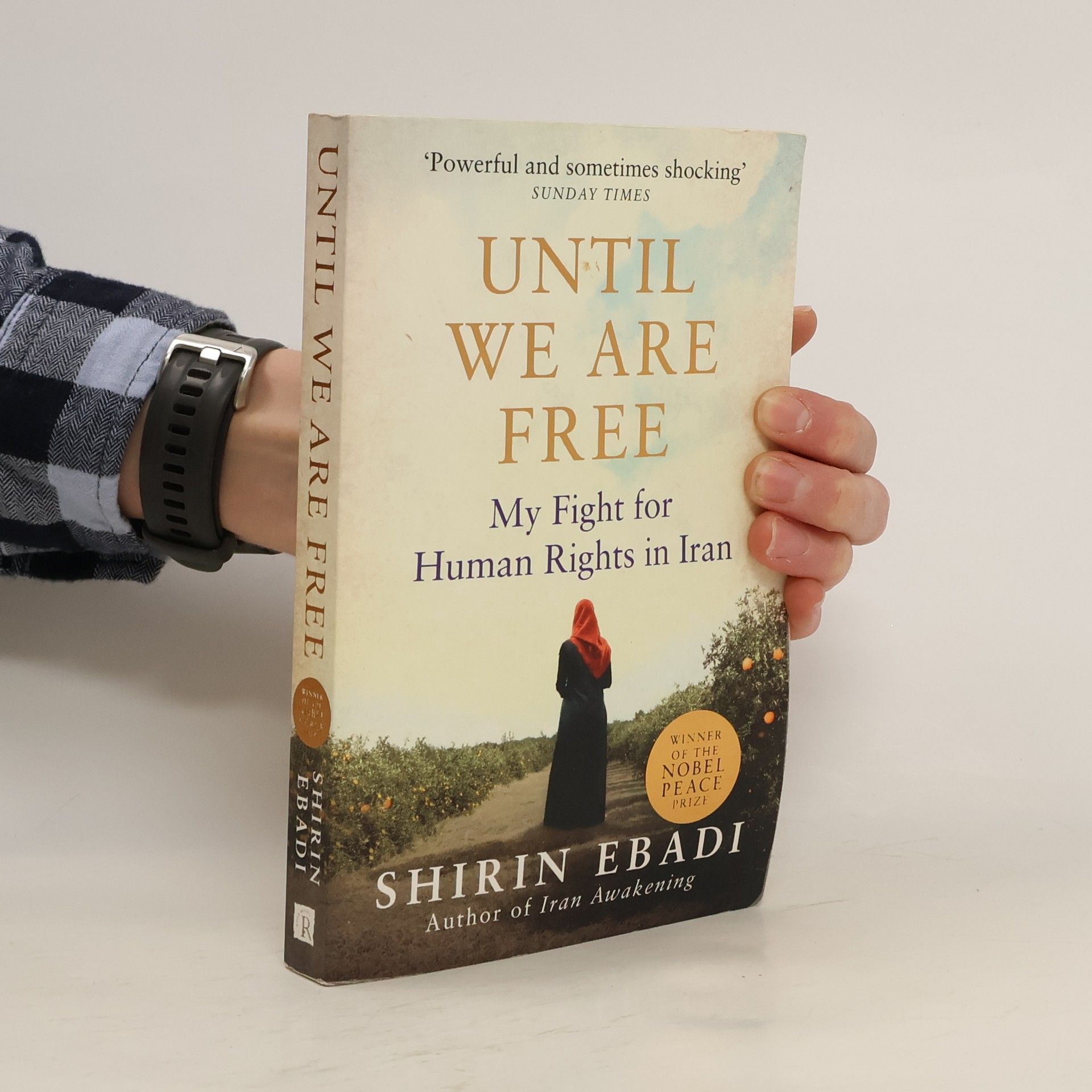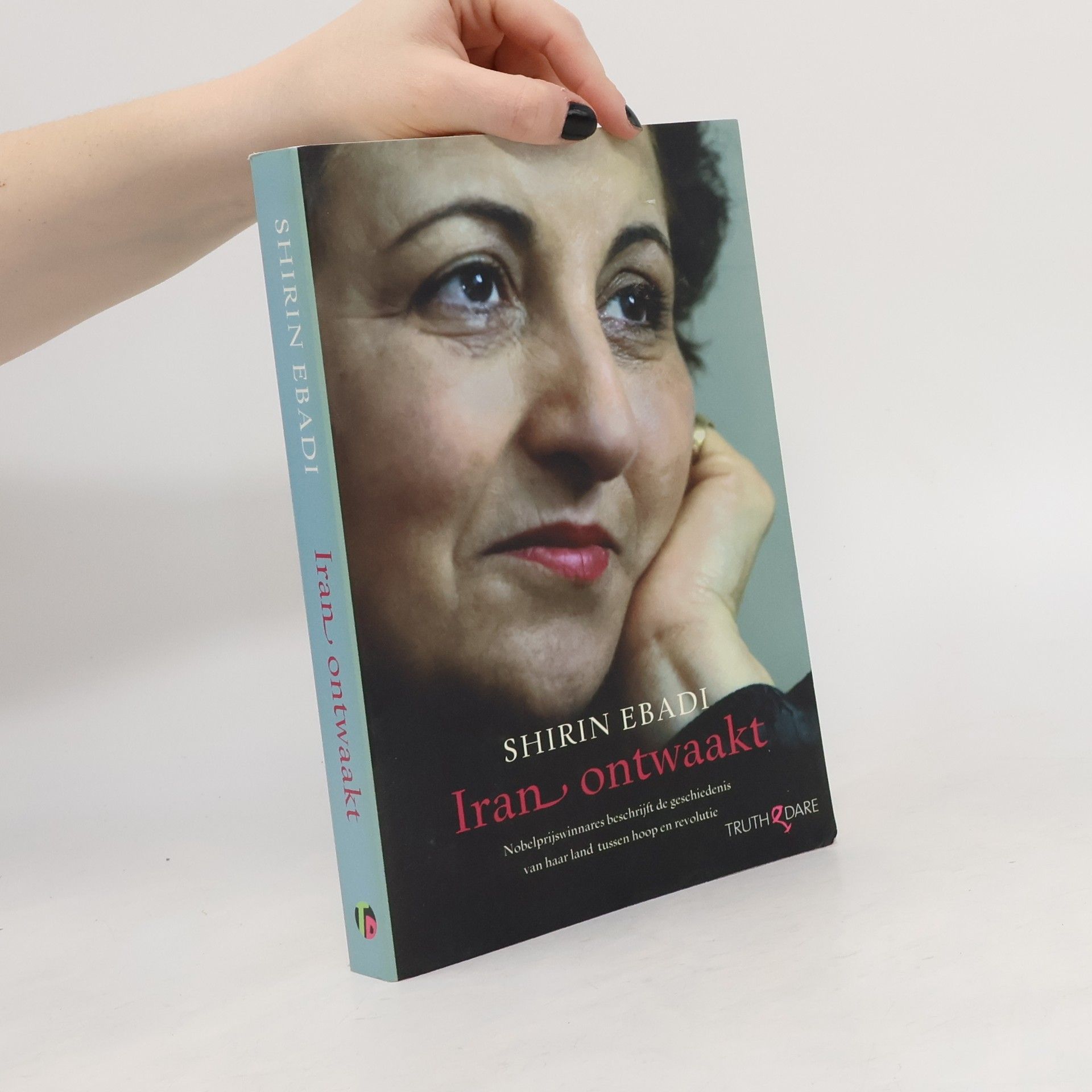Tortura blanca. Entrevistas con mujeres iraníes encarceladas
- 272bladzijden
- 10 uur lezen
Shirin Ebadi is een Iraanse advocaat en mensenrechtenactivist, erkend als de eerste Iraanse winnaar van de Nobelprijs voor de Vrede. Haar werk richt zich op de bevordering van democratie en de rechten van kwetsbare bevolkingsgroepen, met name vrouwen, kinderen en vluchtelingen. Ebadi heeft zich toegelegd op het schrijven van boeken en artikelen, waarmee ze bewustzijn creëert over cruciale sociale kwesties. Haar voortdurende inzet voor gerechtigheid ondanks tegenspoed vestigt haar als een belangrijke literaire figuur en mensenrechtenactivist.






Dr. Shirin Ebadi, iráni emberi jogi ügyvéd és aktivista érzelmileg felkavaró könyvében elmeséli, hogyan küzdött hosszú időn át az országon belüli reformokért. Miközben a szerző fáradhatatlanul harcolt Iránban a demokráciáért, a törvény előtti egyenlőségért és a szólásszabadságért, világszerte milliókat inspirált a munkájával. Saját hazájában életét pokollá tették az állandó megfigyelések, megfélemlítések és az erőszak. A Szabadnak születtem megrázó történeteken keresztül meséli el, hogyan kényszerítették az iráni hatóságok a szerzőt önkéntes száműzetésbe. Nővérét és lányát őrizetbe vették, férjét belekeverték egy kémkedési ügybe. Nobel-békedíját melyet első muszlim nőként kapott hatóságilag elkobozták, teheráni irodáját pedig lerohanták, majd bezáratták. Végül hamis adóügyi vádakkal távollétében minden vagyonától megfosztották.A könyv rávilágít a mai Irán hétköznapjaira, és Ebadi személyes, a hivatásáért és családjáért vívott küzdelmére.A Szabadnak születtem bizonyosságot ad arról, hogy töretlen kitartással és bátorsággal, soha nem múló hittel a legszélsőségesebb helyzetekben is célt érhetünk.
'Powerful and sometimes shocking...' Sunday Times In this powerful book, Dr Shirin Ebadi, Iranian human rights lawyer and activist, tells of her fight for reform inside Iran, and the devastating backlash she faced after winning the Nobel Peace Prize. Having fought tirelessly for democracy, equality before the law and freedom of speech, Ebadi became a global voice of inspiration. Yet, inside her own country, her life has been plagued by surveillance, intimidation and violence. Until We Are Free tells shocking stories of how the Iranian authorities eventually forced her into exile. Her sister and daughter were detained, her husband was enmeshed in an espionage plot with another woman, her Nobel medal was stolen from her safety deposit box, and her offices in Tehran were ransacked. An illuminating depiction of life in Iran today as well as the account of Ebadi's personal struggle to uphold her work and keep her family together, Until We Are Free is ultimately a work of hope and perseverance under circumstances of exceptional difficulty.
PremiA]re musulmane A obtenir le prix Nobel de la paix en 2003, Shirin Ebadi, raconte son combat contre la RA(c)publique islamique iranienne, dA(c)cidA(c)e A la rA(c)duire au silence, elle et ses proches. DA]s la (TM)accession au pouvoir de Mahmoud Ahmadinejad, en 2005, les A(c)vA(c)nements sa (TM)accA(c)lA]rentA tA(c)lA(c)phone mis sur A(c)coute, agents secrets la suivant, proches harcelA(c)s, voire condamnA(c)s, comme sa sA-ur arrAatA(c)e pour des motifs inventA(c)s de toute piA]cea ] Shirin Ebadi aurait pu croire qua (TM)il sa (TM)agissait lA da (TM)un roman da (TM)espionnage. Ca (TM)A(c)tait sa vie. Quand, un jour de 2009, elle rA(c)alise que le gouvernement est prAat A tout pour lui prendre ce qua (TM)elle a de plus cher, son mariage, ses amis, ses collA]gues, jusqua (TM)A son prixA Nobel, elle choisit la (TM)exil. Ne lui reste alors que ce dont elle sa (TM)est toujours servi avec audace: sa libertA(c) da (TM)expression et ses convictions. Un seul mot da (TM)ordreA continuer coAte que coAte le combat pour que les droits de la (TM)Homme soient enfin respectA(c)s en Iran. Ce tA(c)moignage est la (TM)histoire de ce combat. A
Het conservatieve regime na de Iraanse revolutie in 1979 inspireert enkele Iraanse vrouwen te strijden voor rechtvaardigheid.
Throughout her extraordinary career as a lawyer, writer, activist, and dissident, Shirin Ebadi has been a powerful voice for her native Iran, resonating well beyond its borders. As a dedicated human rights advocate and Nobel Peace Prize winner, she has instilled hope for a better future in both Iran and the world. In her memoir, Ebadi shares her eyewitness account of standing courageously at a pivotal moment in history. Known for defending women and children in politically sensitive cases, she reveals her public career alongside her private life, including her faith, experiences, and desire for a traditional life while being a rebellious voice in a repressive society. Ebadi reflects on her upbringing in a modest Tehran household, her education, and her rise as Iran's most accomplished female jurist in the mid-1970s. She articulates her initial hopes for the 1979 Islamic Revolution and her subsequent disillusionment with the hard-line clerics' rule. She recounts her demotion to clerk after being deemed unfit to serve as a judge and speaks out against the oppressive patriarchy that has stripped women of their rights and citizens of their freedoms. Despite her formidable presence, Ebadi is portrayed as an everywoman—a devoted daughter, wife, and mother—who balances her activism with family responsibilities, never leaving for a lecture or prison without preparing meals for her loved ones.